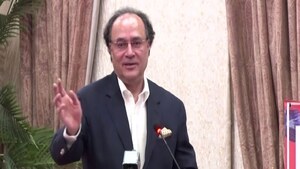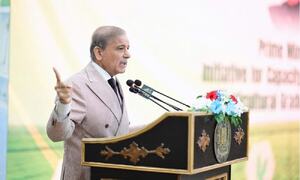US Senate opponents to President George W. Bush's plan to flood Iraq with more American combat troops ignored his pleas for a chance to prove the strategy and rejected the surge in a non-binding resolution.
The Democratic-controlled Senate Foreign Relations Committee Wednesday voted 12-9 on a no-confidence resolution slamming Bush's plan to send an additional 21,500 troops to Iraq as "not in the national interest," as the vice president vowed the plan will move ahead.
The resolution goes to the full Senate for debate as Democrats, who took control of Congress this month for the time in 12 years on a wave of anti-Iraq war sentiment, begin their uneasy cohabitation with Bush's Republican administration.
US Vice President Dick Cheney, in an interview on CNN television before the Senate panel vote, bluntly dismissed congressional objections to increasing US troop levels in Iraq: "It won't stop us."
"It would be, I think, detrimental from the standpoint of the troops," he said. The bipartisan resolution, written by committee chairman Joseph Biden, fellow Democrat Carl Levin, and Republican senators Olympia Snowe and Chuck Hagel, criticised Bush's plan to escalate US troop strength in Iraq.
"My intention was to send the first of many messages - direct and unequivocal - to the president: Stop what you are doing," Biden said during the hearing. The Delaware senator said he would likely submit even tougher, binding Iraq legislation if Bush failed to heed the message of the proposed symbolic measure.
The vote came less than 24 hours after Bush, without giving ground to Iraq war critics, pleaded in his annual State of the Union address with sceptical lawmakers and a wary US public to give his unpopular policy "a chance to work."
Unswayed, opposition Democrats after the speech accused the president of recklessly leading America into war and called for a withdrawal of US forces, in a blunt rebuttal to the president's address.
The non-binding resolution calls on the United States to "transfer, under an appropriately expedited timeline, responsibility for internal security and halting sectarian violence in Iraq to the government of Iraq and Iraqi security forces."
It also calls on the US administration to "engage nations in the Middle East to develop a regional, internationally sponsored peace and reconciliation process for Iraq," and says Iraqi leaders should lead the way in reaching a political settlement that could lead to peace.
Biden said at the hearing he would be willing to work with Republican Senator John Warner, a former head of the Senate Armed Services Committee, to craft acceptable language for a revised measure before it goes to the full Senate for approval.
Republicans on the Senate panel also expressed dissatisfaction with the situation in violence-wracked Iraq, but some said the resolution would make matters worse.
"This vote will force nothing on the president, but it will confirm to our friends and allies that we are divided and in disarray," said Senator Richard Lugar, another former Republican chairman of the panel.
US generals warned Tuesday that a "surge" of 21,500 additional troops to Iraq would add to the squeeze on the military, particularly if the demand for more troops continues to climb to pacify areas beyond Baghdad.
"If it is indeed a plus-up, it is going to make our future more difficult," General James Conway, commandant of the US Marine Corps, said at a hearing before the House of Representatives Armed Services Committee.
BR100
15,059
No Change
0 (0%)
BR30
42,931
No Change
0 (0%)
KSE100
148,815
No Change
0 (0%)
KSE30
45,206
No Change
0 (0%)





















Comments
Comments are closed.